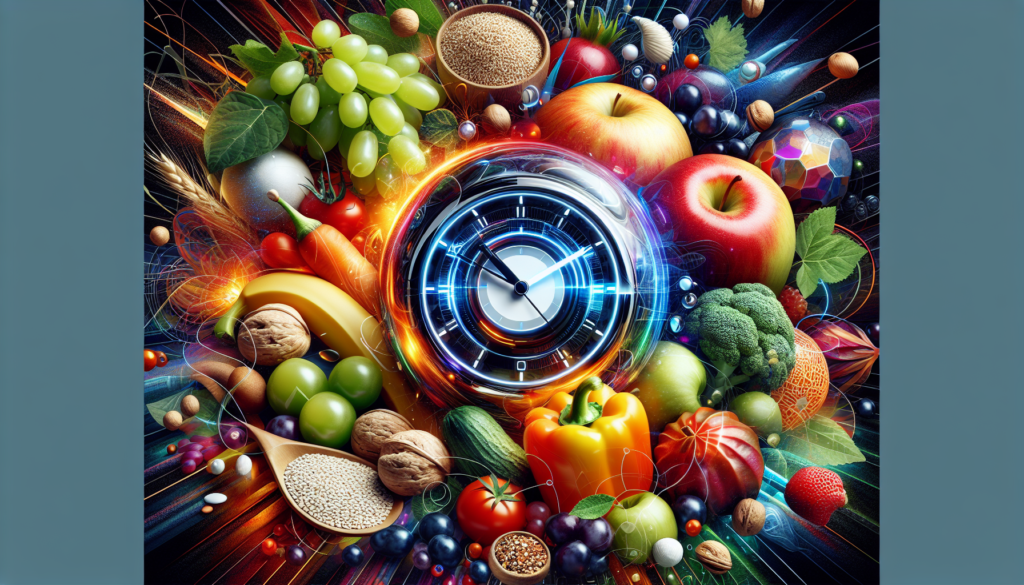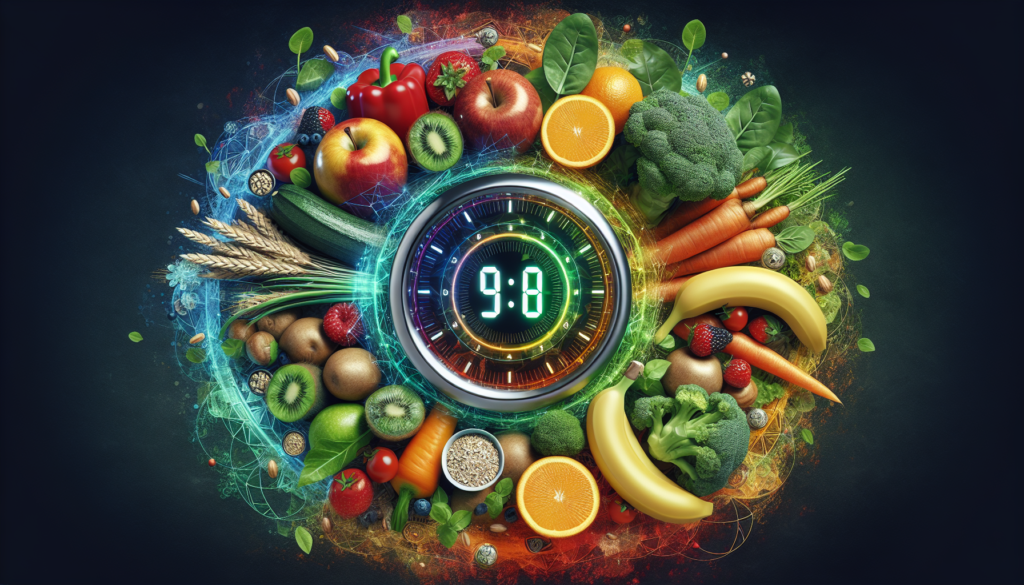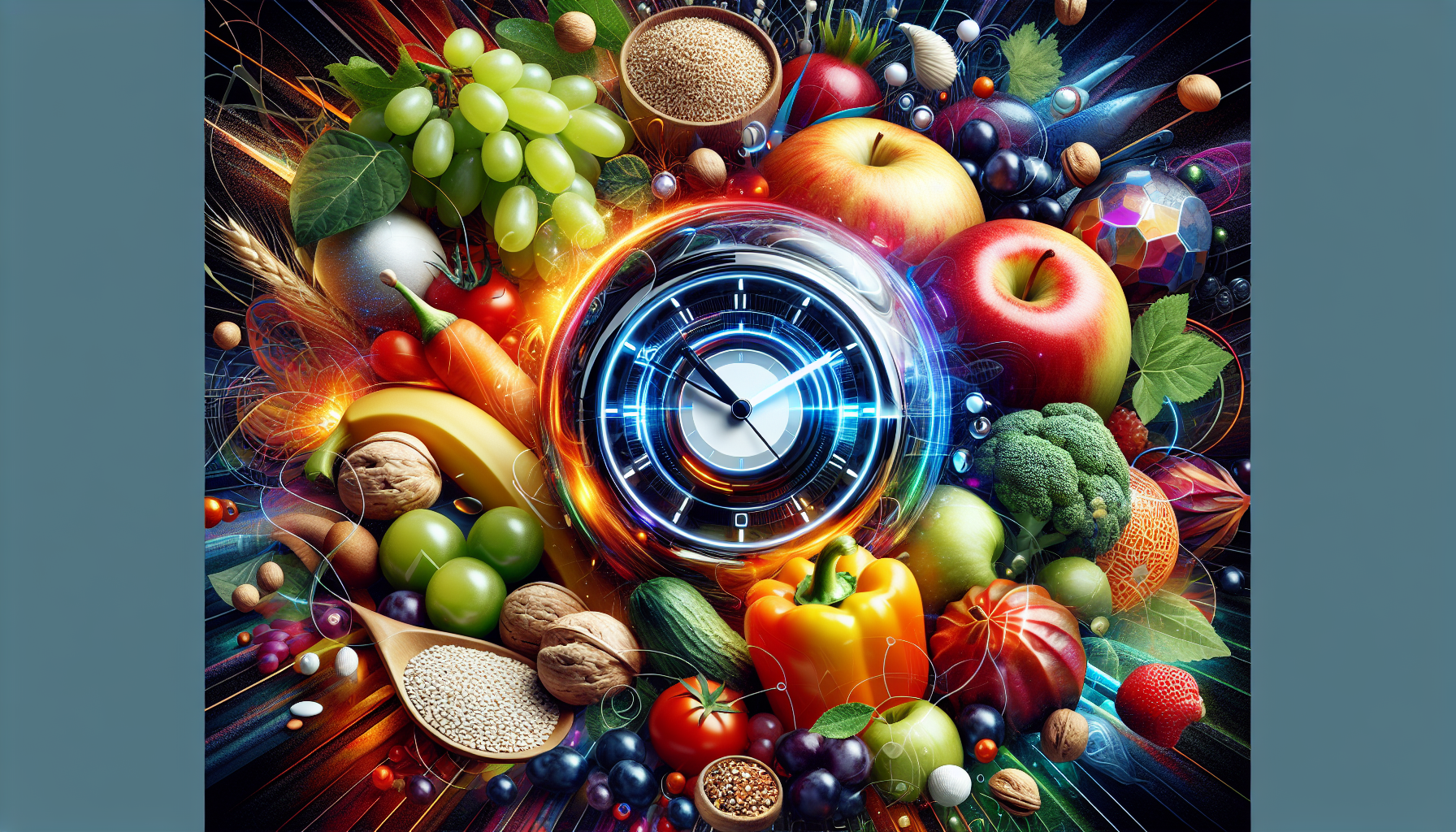Wouldn’t it be nice to avoid the 3 p.m. slump that turns you into a walking advertisement for coffee and self-pity? We’ve all been there: one moment you’re conquering the world, and the next, you’re contemplating whether it’s appropriate to cry at your desk because you’re that tired. Let’s talk about how the timing of your meals can play a pivotal role in optimizing your energy levels, so the next time you feel like a zombie, it’s because you’re binge-watching a new series and not because your energy is dragging you down.

The Mystical Art of Meal Timing
Let’s unravel the grand tapestry of meal timing and how it might just be your key to unlocking an endless treasure chest of energy. Timing, they say, is everything. And while you may wonder if they are merely referring to the time you texted your ex during a moment of weakness, I’m here to tell you it’s more about when you decide to chow down on your daily grub.
Why Timing Matters More Than Daylight Saving Time
Sure, you can ignore that clock in your stomach that says, “Food now!”, but let’s dive into why meal timing is crucial when it comes to maintaining your energy levels. Our bodies, as obnoxious as they might be, are governed by something called circadian rhythms—natural processes that dictate when you should be waking, sleeping, and yes, eating. It’s like nature’s little way of keeping us from turning into a raccoon that snacks on leftovers at midnight.
Skipping the idea that breakfast is the most important meal of the day (yawn), let’s focus on how spreading meals throughout the day can help you avoid that dreaded midday crash.
Breakfast: The Morning Hype Or Just Another Lie?
Ah, breakfast, the meal that has been shoved down your throat since childhood as the most important one. But is it really? Or have you been fooled all these years into consuming cereal on an unsuspecting stomach?
To Breakfast or Not to Breakfast, That is the Question
The debate on whether breakfast is essential rages on like a battle between two dedicated chefs, one holding a frying pan of eggs and bacon, while the other waves a smoothie blender defiantly. Eating breakfast can help regulate your blood sugar levels, meaning you’re not fantasizing about the bag of chips in your drawer at 10 a.m. Yet, the key here isn’t in the mere act of eating breakfast but in eating the right balance that won’t make you prefer a nap over a team meeting.
Table: Breakfast Ideas to Power You Through the Morning
| Breakfast Idea | Description |
|---|---|
| Protein-packed smoothie | A quick blend with some spinach, protein powder, and fruit |
| Greek yogurt with berries | A creamy, fiber-filled treat |
| Oatmeal with nuts | Heart-healthy with a satisfying crunch |
Lunch: The Midday Mishap or Miracle?
Let’s face it, lunches can be where your day takes a nosedive into the sluggish zone. The key to the successful midday feast lies in avoiding foods that are rich in carbohydrates but low in everything else.
What to Avoid: The Lunch Pitfall
If your lunch generally consists of something deep-fried, cheesy, or laden with sugar, throwing caution to the wind, you might be setting yourself up for a plummet in both mood and energy. It’s like playing energy Russian roulette with your afternoon docket of tasks.
Crafting the Perfect Lunch for Lasting Energy
A balanced lunch should focus on proteins and healthy fats to keep you steady until dinner. Keep your carb intake moderate and reserve the mountain of fries for a Friday treat after a long week.
Dinner: The Final Countdown
Dinner holds a place close to our hearts, primarily because it’s the final stretch before bed. It’s the meal you can (hopefully) enjoy without emails buzzing incessantly in the background.
Timing That Nightly Feast
By eating dinner at least 3 hours before you jump into dreamland, you give your body a chance to digest effectively, keeping midnight hunger pangs at bay. The key here is to stick to balanced meals, avoiding a carb coma that might make you regret life decisions at 3 a.m.

Snacking: The Art of Munching Properly
Snacking, contrary to popular belief, isn’t the forbidden fruit many diet fads make it out to be. It’s all about treating it like an art form rather than a house party at a potato chip factory.
Knowing When to Snack
You should snack only when you’re hungry and not just out of boredom. If you keep a healthy snack nearby, like nuts or a piece of fruit, you’re more likely to munch responsibly instead of crossing the line into culinary chaos.
Table: Snack Options That Won’t Betray Your Energy
| Snack Idea | Description |
|---|---|
| A handful of almonds | Smart fats and protein in one crunchy little package |
| Apple slices with peanut butter | Sweet and savory, packed with energy to last you the day |
| Hummus with veggie sticks | A satisfying, crunchy, dip-tastic experience |
Timing It All Together: The Grand Meal Plan
The joyful rhythm of effectively timed meals doesn’t just enhance your energy levels but also gives you a structured framework to keep those hunger-induced mood swings at bay.
Finding Your Own Groove
The truth is, not everything works the same for everyone because, believe it or not, you are unique. So why not experiment and figure out what timing and food combinations make you feel like you’ve had a mini-vacation rather than a marathon meeting?
Meal Timing and Your Zone of Genius
Don’t you want to find that sweet spot where you’re practically dancing through tasks? Well, smart meal timing just might be your ticket. It fuels creativity and productivity, but also helps you avoid the ‘hangries’—that uninvited beast that turns you into a mini Godzilla when you deprived of sustenance. Experimenting with different meal times could unlock your peak performance zone, where ideas sparkle like confetti in your brain.
Forgetting the Fad Diets and Choosing a Routine Instead
Remember the ’90s when grapefruit diets were a thing? Well, meal timing is not about fads; it’s about figuring out a routine that serves you, rather than one long, punishing stint of lettuce-only lunches.
The Role of Hydration: Because We’re Not Camels
Ah, glorious, life-sustaining hydration. We sometimes underestimate our body’s need for good old H2O, thinking it can hang on without enough liquids like a cactus in a desert. But that’s a mistake. Staying hydrated is crucial for keeping energy consistent, especially during those times when you feel like your eyelids weigh more than your whole head.
Subbing in Some H2O
Ensure you’re drinking plenty of water throughout the day. Pop in some lemon slices or mint leaves if plain water makes you yawn. Timing hydration well, similar to meals, keeps your system running like a top-notch espresso machine.
Caffeine, Sweet Caffeine
Can we at least spare a thought for caffeine, our beloved liquid motivation? While it’s not falling entirely under the meal timing umbrella, ensuring that caffeine intake doesn’t lead to post-coffee crashes is crucial to maintaining energy levels. Think strategic power boosts versus sipping enough to bounce off the walls.
When to Say No(Joe)
Limit caffeine to when you absolutely need it, and try and avoid any post-lunchtime indulgence to ensure you sleep soundly at night and don’t accidentally start WWIII with your over-caffeinated alter ego.
Listening to Your Body’s Cues
A refreshing step away from regimented meal timings is simply to listen to your body when it shouts, “feed me, Seymour!”
Learning Your Hunger Signatures
Once you’re mindful of when real hunger strikes, meal timing becomes less about the ticking hands on the clock and more about truly understanding your body’s needs. Keep snacks that meet your personal criteria for not hitting snooze on your energy levels.
The Joy of Scheduled Indulgences
Everybody loves a scheduled indulgence—be it a sugary treat or a cheesy side. The twist is in consciously timing these indulgences so that they enhance your day rather than making you feel like you need to unbutton a top button discreetly.
Plan a Treat, Don’t Let a Treat Plan You
Instead of succumbing to temptation whenever the donut box calls your name, plan your treat time like a dessert-after-meal ritual where you can truly savor the sinfully sweet experience.
Creating a Plan for Delicious Success
Ultimately, meal timing isn’t a rigid disciplinary act designed to make you lose your love for the eclectic joy of consuming food. It’s more like an elaborate dance where the music cues the moves—the keys to transforming everyday energy drudgery into a sustained buoyancy that can amplify everything you do.
Balancing Act: When to Be Strict and When to Be Flexible
While you may think that strict schedules are as appealing as color-coded sock drawers, finding flexibility within your routine helps you cater meal timing to meet personal life demands. And yes, it works even if your personal life includes the chaotic joy of raising kids or a career that doesn’t care about what time it is.
Conclusion: Timing is Your New Best Friend
Meal timing isn’t just about what you eat but when you eat it. Being just a bit strategic transforms you from feeling wrung-out by midday to being a vibrant, unflappable entity even by evening. Engaging in this practice means you too can chuckle at the enthusiasm of morning people when you finally become one.
So, adjust your watches, take heed of your internal clock, and may your energy always be as steady as your favorite sitcom reruns.
